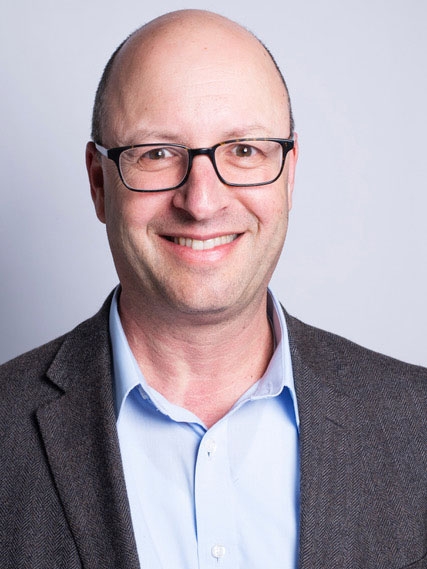Ted Sasson
Curt & Else Silberman Professor of Jewish Studies

- Office
- Axinn 303
- sasson@middlebury.edu
- Office Hours
- Spring 2026: Tuesday and Wednesday 2:30-4:00 p.m.
Theodore Sasson is a sociologist and the Curt and Else Silberman Professor of Jewish Studies at Middlebury College.
He is author of The New American Zionism (NYU Press, 2014) and two previous books, as well as dozens of scholarly articles, book chapters and research monographs in the fields of Israel Studies, diaspora studies, heritage tourism, demography, and the sociology of crime and punishment.
Ted’s short essays and journalism have appeared in Tablet Magazine, The Forward, The Times of Israel, The Jerusalem Post and other periodicals.
At Middlebury, Ted teaches courses about Jewish politics and social movements, Israeli politics and society, the US-Israel relationship and American Jewish life.
Ted also serves as the Ruderman Family Foundation Scholar in Residence at Tel Aviv University’s Institute for International Studies (INSS). Earlier in his career, Ted was a Senior Research Scientist at Brandeis University’s Cohen Center for Modern Jewish Studies, where he concurrently held the position of Visiting Research Professor in the Sociology Department.
Ted has served as chair of the Social Science Division of the Association for Jewish Studies and on the boards of the Association for the Social Scientific Study of Jewry and the Association for Israel Studies. He earned his doctorate at Boston College and his undergraduate degree at Brandeis University.
Courses Taught
HEBM 0234
Contemporary Israel
Course Description
Contemporary Israel: Society, Culture and Politics
In this course we will examine Israeli society and politics in a period of rapid and profound transformation. We begin with an introductory unit on Zionism, Palestinian nationalism and the history of the state. Subsequent units examine the social, cultural and political characteristics of Israel’s main population sectors (Middle Eastern, European, Russian and Ethiopian Jews and Palestinian citizens and residents of the state) and religious groupings (Muslims and Jews, including secular, traditional, national-religious and ultra-Orthodox). The final units examine intensifying political struggles that will shape the future of Israel and the region. Topics will include the role of religion in public life; civil rights, democracy and the courts; and West Bank settlements, occupation, and the Palestinian-Israeli conflict.
Terms Taught
Requirements
IGST 0700
Upcoming
Senior Work
Course Description
Senior Work
(Approval Required)
Terms Taught
JWST 0104
The US-Israel Relationship
Course Description
The US-Israel Relationship: Past, Present and Future
Since the start of the Gaza war in 2023, the alliance between the United States and Israel has grown both stronger and more controversial. In this course, we will examine the history of the special relationship between the two countries with attention focused on its religious, cultural, political and strategic dimensions. Topics will include Christian Zionism, American Jewish politics, Israel-Palestine conflict, the Israel Lobby, geopolitics, and contemporary social movements. Course materials will include lectures, reading assignments and documentary films. All students will complete and present research about a contemporary advocacy campaign meant to influence US policy toward Israel, Palestine and/or the Middle East.
Terms Taught
Requirements
JWST 0200
Current
The US-Israel Relationship
Course Description
The US-Israel Relationship: Past, Present and Future
Since the start of the Gaza war in 2023, the alliance between the United States and Israel has grown both stronger and more controversial. In this course, we will examine the history of the special relationship between the two countries with attention focused on its religious, cultural, political and strategic dimensions. Topics will include Christian Zionism, American Jewish politics, Israel-Palestine conflict, the Israel Lobby, geopolitics, and contemporary social movements. Course materials will include lectures, reading assignments and documentary films. All students will complete and present research about a contemporary advocacy campaign meant to influence US policy toward Israel, Palestine and/or the Middle East.
Terms Taught
Requirements
JWST 0216
Jews Politics&Social Movements
Course Description
Social Movements in Modern Jewish Life
Over the last century, social movements have challenged, shaken up and transformed American Jewish life. In this course, we will consider the influence of movements for civil rights, peace, feminism, Soviet Jewry, LGBTQ+ rights, and for Israel and Palestine. Throughout, our focus will be on the reciprocal influence of political and religious movements, and on the changing character of American Jewish life. Theoretical material will be drawn from the sociology of social movements, diaspora studies, and the sociology of religion. Source materials will scholarly monographs, articles, films and primary documents, and students will conduct original research.
Terms Taught
Requirements
JWST 0302
Current
American Jewish Life
Course Description
American Jewish Life
In this course we will explore American Jewish life during a period of rapid change. We will begin with a survey of American Jews’ 20th century ethnic, racial, and religious identities. We will then focus on scenes of contemporary religious and communal innovation across a wide spectrum of American Jewish life, including case studies of Hasidic, Queer/progressive, Orthodox and Reform Jews, and Jews of Color. Throughout, we will examine how diverse Jewish collectivities incorporate broader American and global ideas, creating new amalgamations and contributing to social change. In the final unit, we will explore contentious issues related to Israel, antisemitism, gender, and American politics. Sources will include books, articles, films, and a study tour in New York City.
Terms Taught
Requirements
